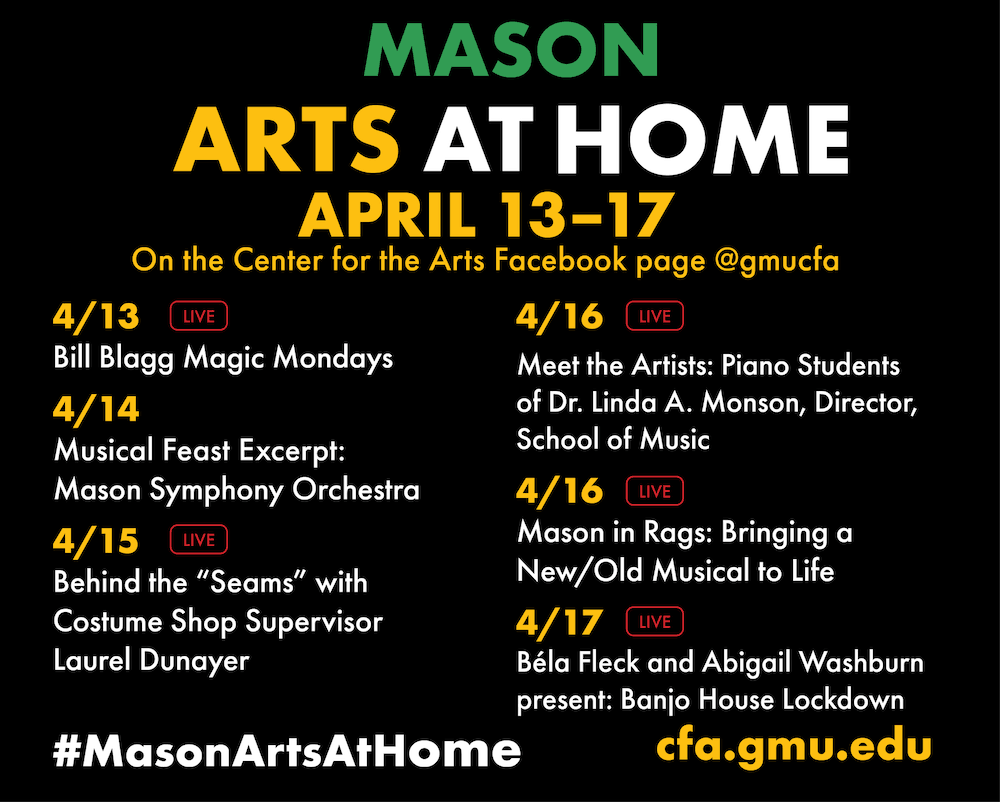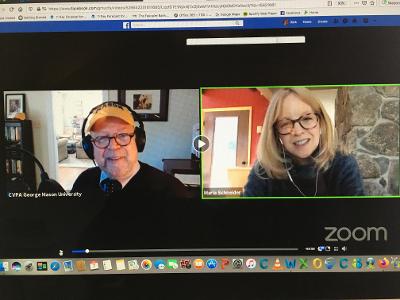With college and university campuses in the DMV area closed because of COVID-19, distance learning is now the norm. But how do students in the performing and visual arts continue their education and training if they are not on campus? After all, don’t those arts disciplines require an in-person experience, including immediate in-person feedback?
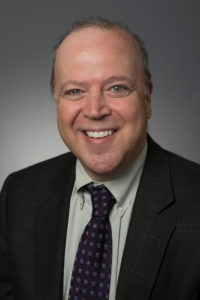
To find out how colleges and universities have pivoted to a new way of teaching, DCMTA spoke with Rick Davis, Dean of the College of Visual and Performing Arts (CVPA) at George Mason University.
“We’re working on both the academic and the producing/presenting angles, as we do in more normal times,” said Davis. “As creators, we’re trying to figure out what kind of show can and should go on. As teachers, we’re asking what kind of arts learning can be instantly translated from our intensely personal style of engagement (an acting class is the very definition of ‘face to face’) to a disembodied ‘gallery view’ on a screen. How can we connect with our 1,700 majors in visual arts, music, game design, theater, dance, and arts management (and 10,000-plus nonmajor students taking CVPA’s classes)? And what might we learn for the future?”
Davis quickly responded to his question.
“Plenty, as it turns out. CVPA’s classrooms and studios, theaters and rehearsal halls, galleries and screening rooms have become the living rooms and basements (and on nice days, sometimes the porches and stoops) of our faculty and students. We’re seeing virtual choirs and students dancing in fields; music lessons, acting classes, drawing and painting sessions over Zoom or Blackboard; seminars with lively parallel tracks of spoken and written conversation—and creative energy organizing itself toward making our work meaningfully available.
https://www.facebook.com/gmubrass/videos/199555278138662/
“While many colleagues in CVPA have been teaching and creating in digital media for years, this is our first comprehensive engagement with total immersion. I am no prophet, but I can confidently suggest that hybrid or blended approaches to both teaching the arts and making/exhibiting work will find a lot of traction in the post-COVID era. I think that’s good.”
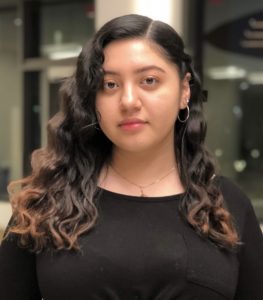
Davis added, “Students are finding new ways of interacting with the professional community too—for instance, Alex Berrios, a student in my Advanced Directing and Dramaturgy seminar, is a member of Arena Stage’s Voices of Now.”
Berrios shared this about her work with Voices of Now: “As a part of the Advocacy Ensemble with Arena Stage, [we] acted as ‘guinea pigs’ for virtual rehearsals before sharing our work as an example for younger ensembles within Voices of Now. We went from meeting…in person at Arena to suddenly meeting only on screen from our homes. There were definitely trial and error moments…. Blocking [choreography] has been thrown out the window but we are creatively finding ways to connect and bring text alive through movements within our virtual frames…. The program…has shown me that it is truly vital to use our voices now, to talk about our experience during this pandemic as artists and serve as mentors for younger artists and show them that art can still be made especially in these times. It makes me realize that art cannot be stopped, only challenged and improved.”
Asked about the Mason College of Visual and Performing Arts as well as performance spaces such as the Mason Center for the Arts and the Hylton Performing Arts Center (the Hylton facility is a result of the efforts of Prince William County, the City of Manassas, George Mason University, and the Commonwealth of Virginia, along with private donors and local businesses), Davis responded, “The cancellation of a roster of performances and exhibitions across multiple venues affecting tens of thousands of patrons was painful. But out of that sense of loss came a creative response: Mason Arts At Home.
“Above all, we’re trying to preserve the essence of what we do: the development of the artist’s voice and the living out of our motto: the arts create community,” noted Davis.
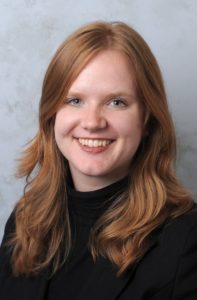
“Our programming team, led by Adrienne Godwin, quickly set to work with our academic programs and the wider community of artists to create online content ranging from quick, informal glimpses of students and faculty at work to more extended experiences such as my hour-long interview with Maria Schneider, an NEA Jazz Master who was scheduled to be a Mason Artist-in-Residence with us this spring (she’ll be back next year).
“Seeing the impact of the artistic lockdown on the freelance creative community, and in search of lively programming for Mason Arts At Home, we created the Alumni Artist Support Initiative, including two new vehicles for CVPA young alumni (graduating 2009 and later) to get paid for their work, the Fund for Digital Content (seeking existing material that we can share with our wider community), and the New Works Fund (a small commission program). Works and ideas are already coming in: stay tuned!”
Mason Arts at Home also includes a lineup of distinguished filmmakers in conversation and a number of performances (live and recorded) by guest artists and Mason student ensembles.
“Every day I am energized by the creativity and commitment of our faculty and staff, and by the generosity and resourcefulness of our students,” said Davis. He went on to mention that even with new creative connections there can be struggles in the absence of in-person feedback on work.
Davis concluded our conversation with this. “I believe we are learning some ways of working that will stay with us as we return to our live lives. We’ll be smarter and stronger—and more engaged—on the other side.”
https://www.facebook.com/SchoolOfDanceAtGeorgeMasonUniversity/videos/872648509847805/


